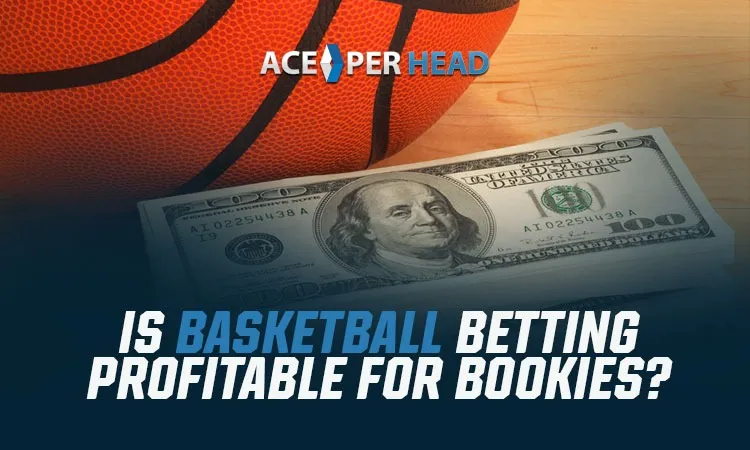
As more states legalize sports gambling, you want to get in on the action. While sports gambling is a fun diversion on a Sunday afternoon, nobody likes to lose money. You want to win.
There’s so much more to sports gambling than winning or losing. You have to learn how to make your money investment work for you.
Can sports gambling be profitable? It can be if you learn how to do it right.
Read this article to learn the important aspects of sports betting and the best pay per head services.
What Is Sports Gambling?
You need to know the basics to turn a profit. You wouldn’t throw your money into the stock market without knowing the rules. Don’t go to a casino and blindly bet your cash.
Sports gambling is a wager on a sports game that fall into three simple categories. These are often called “lines,” andthese linesget made by bookmakers based on any number of variables.
Moneyline
This is a straight win or lose wager. Let’s use a college football example. Say this Saturday, Pitt plays Clemson. You think Pitt will win. A moneyline bet on Pitt is a bet for Pitt to win by any amount.
It’s not so simple. There are numbers associated with that bet that are determined by the sportsbook and how much money the public has bet on either team.
Say you see a number that has Pitt +200. That means if you place $100 on Pitt and they win, you win $200. There is also a -165 posted with Clemson. That means to win 100 dollars, you must bet 165.
Any team with a ‘+’ by their number on the moneyline means they are an underdog. A ‘-‘ indicates a team is a favorite.
Spread
The spread is more complicated than a moneyline bet. When betting on a spread, you’re wagering not only on the winner of a contest but on how much your selected team will win and lose by.
Using the Pitt vs. Clemson game, let’s say you see Pitt +200/+7.5 -110. That +7.5 means you can bet on Pitt to lose, but you’re betting they’ll lose by less than 7.5 points.
You’ll see Clemson at -165/-7.5 -110. This means if you bet Clemson on the spread, they have to win by more than 7.5 points for you to cash.
The -110 associated with those spread numbers mean betting $110 on either side will win you $100. That extra ten dollars recouped by the casino is often referred to as “the juice.” Think of the juice on either side of a spread bet as the casino’s brokerage fee.
Most juice comes in at an even -110 on either side, but that number can be adjusted based upon what money has come in.
Remember when sports gambling, while a sportsbook releases their lines partially based on who they think will win a given contest, their numbers are set to encourage an equal amount of play on both sides of any bet.
Total
A total bet, otherwise known as an over/under bet, is a wager on the total amount of points scored by both teams in a game.
Using the Pitt vs. Clemson model once again, the line will look something like this: Pitt +200/-7.5 -110/49.5 -110.
The total is the last part of the line, and if you place a total bet, you’re betting on whether the combined score of both teams will be above or below 49.5 points at the -110 number.
Parlays
Parlays are the combination of bets made to increase your payout. Say it’s a Saturday and you like Pitt +200. Yet, you also like Miami -14.5, and you think the evening game of Michigan vs. Nebraska will go over 35.5 points.
With a parlay, you can combine those bets. Instead of winning $200 on the Pitt game, you can win $2,500 if all those bets win. Sounds great, right?
While parlays are attractive to novice gamblers thanks to the high payout, they are not often played by successful gamblers. The sportsbook offers such high payouts because the odds of you hitting all three bets are very low.
It’s a Numbers Game
So much of profitable gambling is learning to play the numbers rather than picking winners. Realize that the best professional sports gamblerstop out at a 55 percent win rate. This means the best still lose a considerable amount.
Playing the numbers means exploiting the weaknesses of any sportsbook. Sometimes human handicappers make mistakes. Profitable gamblers are the ones who catch those errors.
It also means finding value. For example, you have a good feeling that Pitt will upset Clemson. If you bet 100 dollars on the spread, you’ll only win $91. If you bet $100 on the moneyline, you’ll win $200.
Knowing what to bet is where sports gamblers make a profit.
Money Management
The long-term profitability of sports gambling also depends on how well you manage your money.
The amount of money you’ve set aside to gamble with is your bankroll. The standard number you set to bet on each game is a unit. Say you have a $1,000 bankroll and decide you’ll start betting 5% on each game. That $50 is known as a “unit.”
If you bet $100, you bet two units, and so on. The unit system is a good way to keep track of how much money is coming in compared to how much is going out over a long period of time.
An important aspect of bankroll management for profitable gambling is knowing when to stop. Many novice gamblers get caught in the hamster wheel of chasing bets after they’ve lost money.
If you thought Pitt was a lock and bet $100 and lost, you’ll have the desire to make bets to make up that money and break even.
Successful gamblers don’t do this. Know how much money you can lay and stick to it. Remember that losing is part of the game.
Profitable Betting Business
While laying action adds a considerable amount of fun to any sports game, you don’t do it to lose.
Can sports gambling be profitable? For a player, it can be, but being profitable takes a considerable amount of work and dedication. Make sure you know what you’re betting on and how to manage your cash.
Playing isn’t the only way to turn a profit. Do you think you have the handicapping skill to run your own sportsbook? Here at AcePerHead.com, we have all the tools you’ll need.Contact us today for more information.




 Ace Per Head has been in the online bookmaking services business since 1998 running one of the top-rated and most trusted brands in the pay per head industry. We give our bookie agents the personalized dedicated service they deserve.
Ace Per Head has been in the online bookmaking services business since 1998 running one of the top-rated and most trusted brands in the pay per head industry. We give our bookie agents the personalized dedicated service they deserve. 